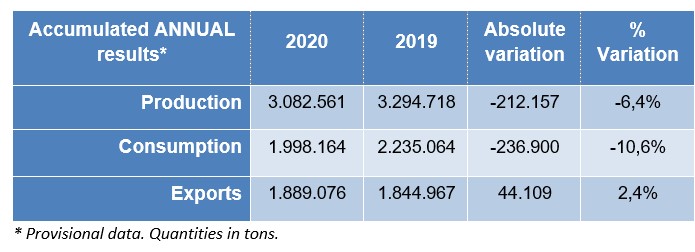The final balance of 2020 has revealed the difficulties that the Catalan cement industry is going through, with a 10.6% drop in consumption in the domestic market for a total of 2 million tons, which historically corresponds to those consumed in the year 1968. This decrease can be attributed to the effects on the activity of the Covid-19 pandemic that, especially in the months with the highest incidence of March and April, paralyzed the works in progress.
In this context, the forecast for 2021 becomes uncertain: on the positive side, a progressive return to normality is expected as the current situation is overcome; On the negative side, it is feared that economic activities will not resume with the necessary force and on time, so that the recovery will be delayed. But above all, the uncertainty of 2021 for the sector is determined “by the fall in public bidding and visas for new housing construction that occurred last year”, says Salvador Fernández Capo, president of the Ciment Català employer’s association.
The manager considers that “if the public administrations do not give an effective impulse to the bidding of new infrastructures, the continuity of the activity in the cement industry will be very threatened”. He also recalls that “construction is the sector that most rapidly generates employment and economic activity, with an average creation of 14 jobs for every million euros invested”. The economic recovery of the country as a whole depends “directly on the recovery of investment in public works and the promotion and private investment in housing”, Fernández Capo emphasizes. In this sense, it reiterates the need to design housing policies as a formula to recover economic activity and, at the same time, respond to the social and environmental needs of this sector (70% of the housing stock is prior to 1980 and does not meet insulation, sustainability and energy efficiency standards).

